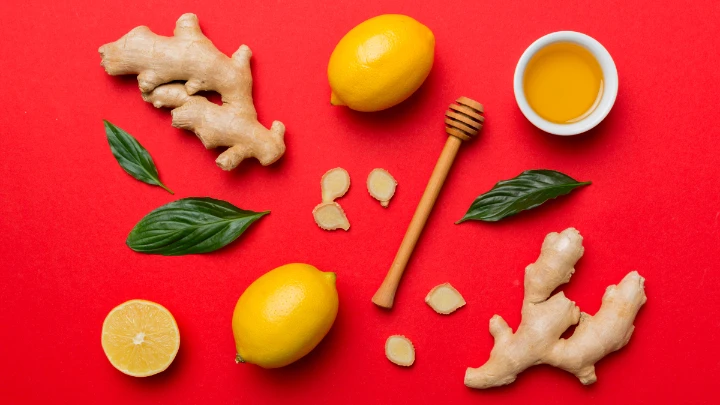A weakened immune system makes you more susceptible to colds and the flu, but with the right habits and dietary choices, you can bolster your defence. Adequate rest, reduced stress, and healthy meals play a crucial role in recovery.
Feeling flu-ish? These foods will have you back on your feet in no time
tbs || Shining BD
A weakened immune system makes you more susceptible to colds and the flu, but with the right habits and dietary choices, you can bolster your defence. Adequate rest, reduced stress, and healthy meals play a crucial role in recovery.
From vitamin-rich fruits to nourishing soups and stews, adopting a balanced diet can help prevent mucus build-up, ease congestion, and promote faster healing during and after an illness.
If the immune system is weak, catching a cold is possible. Take rest, sleep at least 7-8 hours, and try to keep stress levels low. It is also essential to make a change in your diet if you are not eating healthy.
Take plenty of fluids like juice, tea, or soup. It will help flush toxins from the body. Eat a lot of fruits and vegetables, especially fruits rich in beta-carotene such as potatoes, broccoli, cauliflower, and carrots. Beta-carotene prevents mucus build-up in the nose and lungs.
Watermelon, pear, etc. are also helpful as they help to rehydrate.
A cold or influenza often causes shortness of breath and suffocation. It is good to eat vitamin C rich foods at this time as vitamin C helps to keep histamine levels low. Also keep lemons, oranges, and tomatoes in your diet every day.
If you are not allergic to mushrooms, they help to boost up the cells that keep the immune system active. Beans, almonds, etc. contain zinc which helps reduce the onset of colds at the initial phase.
To help alleviate headaches and congestion, consume food cooked with green chillies or chilli powder. These ingredients help prevent mucus build-up in the chest or head, allowing mucus to move more freely. Garlic is beneficial for inhibiting the growth of bacteria, so consider using a small number of whole garlic in your cooking. For sore throat relief, cloves are useful. Ginger is also helpful when dealing with the flu. You can drink ginger tea, or if you prefer, add raw ginger slices to cooking, salads, or chutneys.
Additionally, aim to take 500–1000 mg of vitamin C daily. After recovering from the flu, cod liver oil, which contains vitamins A and D, is especially important. Vitamin A plays a key role in maintaining health post-influenza.
Serving tips
During influenza, people often lose their appetite, but eating is essential for maintaining health. However, do not force meals. Instead, offer a variety of foods to help change the taste and nourish the body. Some examples include —
Fresh fruit juice (without added sweeteners)
Light chicken or vegetable stew seasoned with salt, pepper, and lemon juice
Baked fish or roasted chicken
Vegetable, chicken, or tomato soup
Citrus-rich fruits like oranges, lemons, guavas, hog plums and grapefruit
Warm water with lemon and honey
Salads with lemon juice, vegetables, sprouts, and whole-grain bread
Shining BD




































